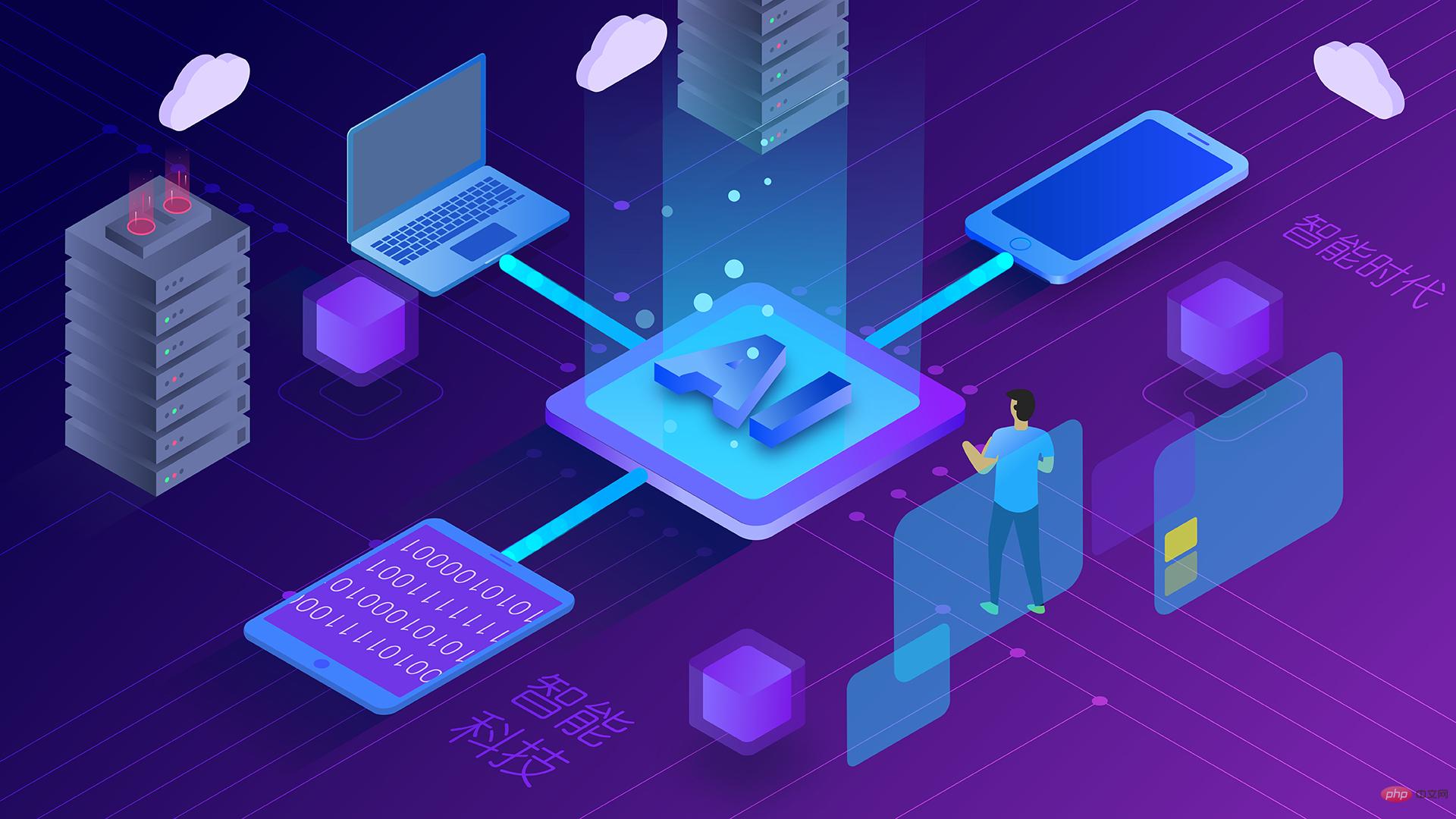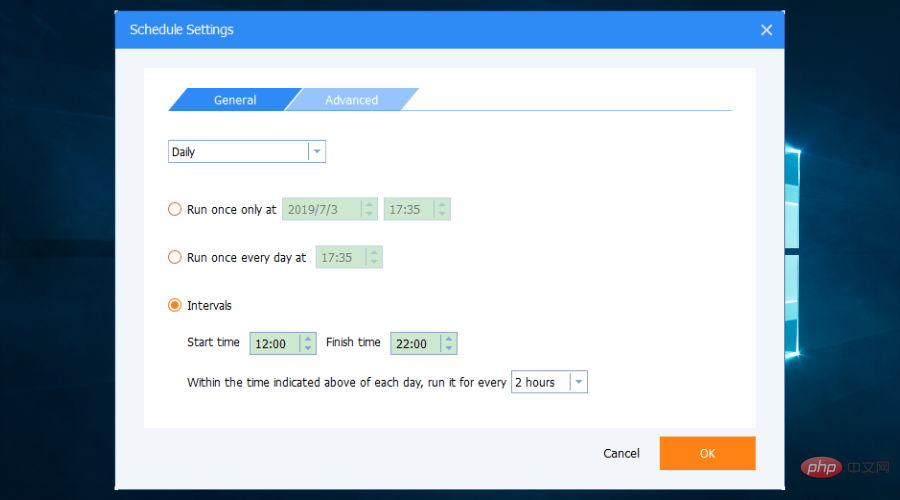 Java
Java javaTutorial
javaTutorial What are the application prospects of Java functions in the field of cloud computing?
What are the application prospects of Java functions in the field of cloud computing?Java functions have broad application prospects in the field of cloud computing and can easily execute serverless code: 1. Event processing: as an event handler, automatically execute code; 2. Data processing and analysis: process data in parallel and provide insights; 3 .Microservices: Build small modules of code that are deployed independently. Practical case: Handling S3 bucket events on AWS Lambda.

The application prospects of Java functions in the field of cloud computing
As a mature and stable programming language, Java has great application prospects in the field of cloud computing. It has broad application prospects. Java functions are serverless code that executes on the cloud platform and can be easily deployed and managed without having to consider the configuration and maintenance of the underlying server. The following are application cases of Java functions in the field of cloud computing:
1. Event processing
The cloud platform will generate a large number of events (for example, new objects are added to the object storage bucket) file) needs to be processed. Java functions can serve as event handlers, automatically executing specific code when an event occurs. This makes it easy for developers to create applications that respond to cloud events.
2. Data processing and analysis
Cloud platforms often need to process large amounts of data. Java functions can process this data in parallel, performing operations such as filtering, aggregation, and transformations. By using distributed frameworks such as Hadoop or Spark, Java functions can process large amounts of data to provide insights for analysis and decision-making.
3. Microservices
Java functions can be easily implemented as microservices, which are small code modules that are independently deployed and maintained. This approach helps build loosely coupled, scalable applications that can be deployed independently as needed.
Practical Case
The following is an example of using a Java function on AWS Lambda to handle S3 bucket events:
import com.amazonaws.services.lambda.runtime.Context;
import com.amazonaws.services.lambda.runtime.RequestHandler;
import com.amazonaws.services.s3.event.S3EventNotification;
public class S3EventProcessor implements RequestHandler<S3EventNotification, String> {
@Override
public String handleRequest(S3EventNotification event, Context context) {
// 处理S3事件,例如对象创建或删除
// ...
return "Event processed";
}
}Conclusion
Java Functions, a powerful cloud computing tool, provides the functionality needed to build efficient, scalable and event-driven applications. Java functions are playing an increasingly important role in cloud computing by leveraging capabilities such as event handling, data processing, and microservices. Java Functions are a valuable option for developers looking to develop innovative applications in the cloud.
The above is the detailed content of What are the application prospects of Java functions in the field of cloud computing?. For more information, please follow other related articles on the PHP Chinese website!
 云计算与web前端挂钩吗Jan 29, 2023 am 10:45 AM
云计算与web前端挂钩吗Jan 29, 2023 am 10:45 AM云计算与web前端有挂钩。云计算在web前端的体现就是可以到云里拿一些资源来支撑业务;这些资源可以是计算能力、存储空间等硬件资源,也可以是各种应用、服务甚至桌面等软件资源。再次细分之后可以看到,当云计算体现到前端时,终端用户获得的要么是应用,要么是桌面;那桌面云的概念就应运而生了。桌面云的重点也在于应用,为用户搭建了种种桌面云应用环境,解决用户所遇到的各种业务问题。
 人工智能能取代云计算架构师吗?Apr 07, 2023 pm 10:27 PM
人工智能能取代云计算架构师吗?Apr 07, 2023 pm 10:27 PM人工智能系统每天都令人印象深刻。如今的人工智能可以自动化许多信息工作者的任务,因此那些从事云计算工作的人担心自己会成为下一个。人们对人工智能及其应用的兴趣大约在五年前发生了变化。后来发生了大流行,一些预算转向了快速云迁移。现在一切都恢复正常了,人工智能又回来了。大多数企业都掌握了人工智能的基本可能性,并希望将这项技术武器化,用于自己的业务。在这个过程中,技术变得更加令人印象深刻。例如,随着ChatGPT等生成式AI服务的出现,生成式人工智能从博士论文变成了可访问的免费现实。生成式人工智能是一种基
 人工智能在云计算中能起到怎样的作用?Apr 09, 2023 am 11:31 AM
人工智能在云计算中能起到怎样的作用?Apr 09, 2023 am 11:31 AM在当今的数字世界中,人工智能和云计算每天影响着许多人的工作和生活。云计算帮助企业变得更加敏捷和灵活,并提供成本效益。借助人工智能技术,有助于从数据中产生洞察力,提供卓越的客户体验。因此,协同人工智能和云计算解决方案将使企业更接近其最终客户并提高其运营效率。云计算及人工智能是什么?云计算是分布式计算的一种,指的是通过网络“云”将巨大的数据计算处理程序分解成无数个小程序,然后,通过多部服务器组成的系统进行处理和分析这些小程序得到结果并返回给用户。云计算基于按需付费的定价原则。简单来说,云计算可以定义
 在人工智能基础设施方面,您应该选择边缘或云?May 08, 2023 pm 11:58 PM
在人工智能基础设施方面,您应该选择边缘或云?May 08, 2023 pm 11:58 PM如今,边缘计算一直是热门话题。被誉为近年来最令人兴奋的技术转变,关于其变革力量的讨论很多!随着越来越强大的AI/ML算法重新定义“智能”以及更便宜、更强大的“边缘”设备的可用性,这种炒作在很大程度上是真实的。但是,如果要考虑边缘计算的历史,它会比最近的兴趣让我们相信的更早。事实上,计算和智能最初始于边缘,当时大多数应用程序几乎不存在高带宽网络连接。即使在1990年代后期,远程部署在工厂或现场的关键测量设备通常也具有处理传入传感器数据的专用计算能力。然而,这些设备中的算法在“智能”方面只是初级的
 2022 年最佳 Windows 11 备份软件,推荐 3+ 款工具Apr 26, 2023 pm 11:22 PM
2022 年最佳 Windows 11 备份软件,推荐 3+ 款工具Apr 26, 2023 pm 11:22 PM无论它多么先进,技术都可能会发生令人讨厌的转变,您可能离丢失文件只有一步之遥。例如,硬盘驱动器因崩溃而臭名昭著,而如今的勒索软件可以使计算机的内容无法访问。随着数字内容对企业以及包括视频、照片和音乐在内的个人资产变得至关重要,很明显,使用备份软件保护一切变得比以往任何时候都更加重要。为什么要使用备份软件?您需要使用备份软件的原因有很多。您的设备可能被盗,您的硬盘驱动器可能会意外崩溃,或者您可能成为恶意软件的受害者。如果您不想冒丢失所有数据的风险,请考虑使用备份软件,最好是基于云的软件,因为它们比
 云计算通用可编程DPU发展Apr 07, 2023 pm 07:31 PM
云计算通用可编程DPU发展Apr 07, 2023 pm 07:31 PM着眼于数据中心的技术发展和演进,DPU 作为通用的数据处理器,它不是对 NIC/SmartNIC 的简单替代,而是对网络基础架构的本质改变。DPU 本身所具有的通用层级化可编程性、低时延网络、统一管控的特性使得 DPU 正在促进新一代数据中心从架构上实现优化和重构。DPU 作为通用数据处理的基础部件,将卸载原本运行在CPU、GPU中的通用数据处理任务,释放CPU、GPU 的算力,支撑 CPU、GPU 发挥更大的效能。“云计算通用可编程DPU发展白皮书(2023年)”白皮书通过阐明和分析 DPU
 云计算架构分为哪三个层次Dec 23, 2020 pm 04:19 PM
云计算架构分为哪三个层次Dec 23, 2020 pm 04:19 PM云计算架构分为基础设施层、平台层和软件服务层三个层次,云计算的目的是通过基于网络的计算方式,将共享的软件或硬件资源和信息进行组织整合,按需提供给计算机或其他系统使用。
 Microsoft Security 通过多云功能升级用户防护能力Apr 24, 2023 pm 09:07 PM
Microsoft Security 通过多云功能升级用户防护能力Apr 24, 2023 pm 09:07 PM微软详细介绍了它计划如何通过将多云支持引入其主要安全策略来进一步保护客户的安全。与此相一致,该公司旨在引入新功能和进步,以帮助从集中管理的角度加强安全性和控制。为了尝试向其客户引入更简单的安全解决方案,以便他们不会发现管理多云环境具有挑战性,微软决定将“MicrosoftDefenderforCloud的本机功能扩展到谷歌云平台(GCP)”。得益于GCP的支持,微软成为唯一一家为业界前三大平台提供原生多云保护的云提供商,这些平台分别是:微软Azure、亚马逊网络服务(AWS)


Hot AI Tools

Undresser.AI Undress
AI-powered app for creating realistic nude photos

AI Clothes Remover
Online AI tool for removing clothes from photos.

Undress AI Tool
Undress images for free

Clothoff.io
AI clothes remover

AI Hentai Generator
Generate AI Hentai for free.

Hot Article

Hot Tools

Dreamweaver CS6
Visual web development tools

SecLists
SecLists is the ultimate security tester's companion. It is a collection of various types of lists that are frequently used during security assessments, all in one place. SecLists helps make security testing more efficient and productive by conveniently providing all the lists a security tester might need. List types include usernames, passwords, URLs, fuzzing payloads, sensitive data patterns, web shells, and more. The tester can simply pull this repository onto a new test machine and he will have access to every type of list he needs.

MantisBT
Mantis is an easy-to-deploy web-based defect tracking tool designed to aid in product defect tracking. It requires PHP, MySQL and a web server. Check out our demo and hosting services.

mPDF
mPDF is a PHP library that can generate PDF files from UTF-8 encoded HTML. The original author, Ian Back, wrote mPDF to output PDF files "on the fly" from his website and handle different languages. It is slower than original scripts like HTML2FPDF and produces larger files when using Unicode fonts, but supports CSS styles etc. and has a lot of enhancements. Supports almost all languages, including RTL (Arabic and Hebrew) and CJK (Chinese, Japanese and Korean). Supports nested block-level elements (such as P, DIV),

ZendStudio 13.5.1 Mac
Powerful PHP integrated development environment





